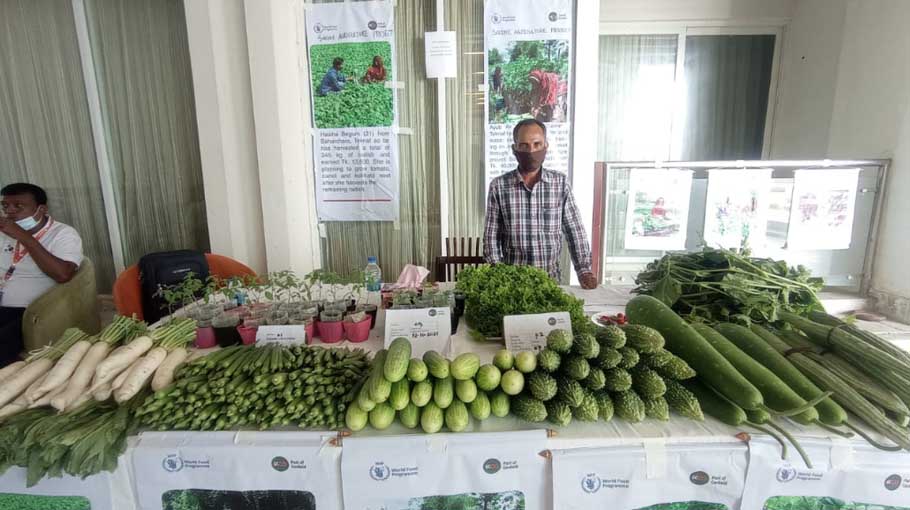Veg farming on saline lands may bring prosperity


There is about 30 percent cultivable land in the coastal areas of Bangladesh. Out of that 53 percent of the land is saline. If vegetables can be produced in these salt tolerant lands, economic prosperity will come to the farmers of the country.
This information was given at a workshop held in the conference room of a hotel in the tourist city, Cox’s Bazar on Saturday morning.
It was informed at the workshop that improved varieties of high yielding vegetables have now been developed in the salt tolerant lands. These improved varieties of vegetables are being cultivated in salt tolerant lands.
Professor Monirul Islam, a teacher at Dhaka University, presented information on how vegetables are being grown on salt tolerant land and how this production can be further spread.
He spoke of the potential for cultivation in salt tolerant lands in the coastal areas of Cox's Bazar district.
The workshop was attended by representatives of various levels including traders, hotel authorities, Cox's Bazar Chamber of Commerce, journalists, vegetable growers and sellers.
With the technical and financial support of the World Food Program (WFP) of the United Nations, the international organization for eco-cooperation, ICCO Cooperation showcased improved varieties of vegetables such as lettuce leaves, capsicum, cherry tomatoes, broccoli, carrots, squash, carrots and turnips on the occasion.
The benefits of producing and marketing these vegetables at high prices were discussed at the workshop. It was informed at the workshop that local farmers can earn money and improve the quality of life by selling them in the tourist zone.
ICCO Cooperation officer Moin Uddin Ahmed Khan said they were providing technical assistance in the production of organic vegetables in several places of Cox’s Bazar district.
Residential hotels are connected too, so that farmers can sell their vegetables at higher prices.
He also informed at the time that the famous vegetable 'Helophytes' from the Netherlands is being considered suitable for cultivation in Bangladesh.



